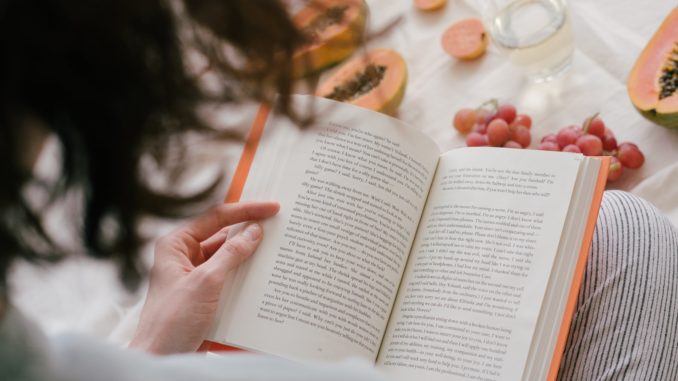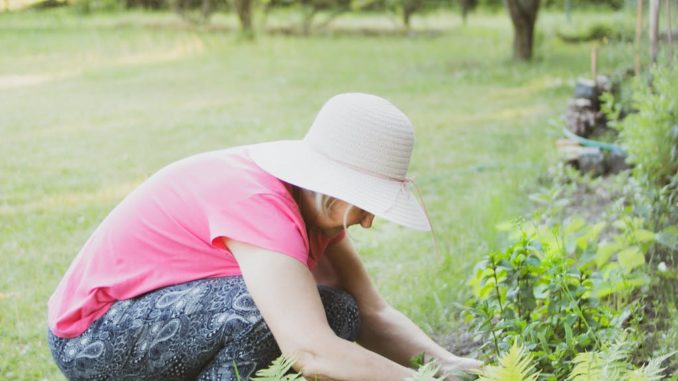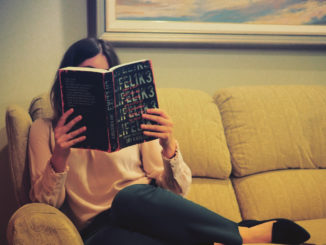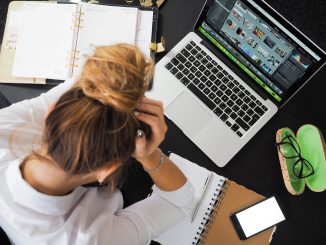
A feature article for ABC News Online that will explore the rise of a more ‘analogue’ lifestyle that many have chosen to adopt whilst in lockdown during the COVID-19 pandemic.
The coronavirus pandemic has, and continues to have, devastating public health effects globally, with nearly 7000 cases in Australia alone so far. However, life in lockdown has had some positive effects, with many Australian’s returning to a more unplugged lifestyle.
I am interested in finding out why there has been a rise in un-plugged activities, specifically, the psychological factors that influenced this lifestyle change and the mental health benefits of it.
The rise in retro forms of entertainment is clearly evidenced in the unprecedented reports in revenue increases from certain industries. From book sales, with companies such as Dymocks reporting an increase in sales by 400 per cent, to wool companies such as The Australian Yarn Company with an increase of 200 per cent and products such as seedlings, potting mix and yeast being almost impossible to get your hands on.
There has clearly been a return to a more primitive style of living, with more people choosing to grow, create, and entertain themselves from the comfort of their own homes.

General Structure:
- Lead: regarding the adaption of analogue hobbies/lifestyle during lockdown
- Basic summary of coronavirus lockdown rules
- Popular chosen analogue activities and statistics on sales etc.
- Interview and expert opinion quotes on WHY this lifestyle change has occurred and further discussion of positive mental health effects etc.
- Inclusion of video interview
- Further links/suggestions of activities
- Hypothesis/prediction of the lasting effects
Target Audience, Timeliness and Human Interest Value:
The crux of the article will identify and explore this response, and furthermore, discuss the positive effect this refined lifestyle has, and whether it will last in a post-pandemic Australia. The intended target audience is any adult of any gender, as this response is not necessarily bound by age, gender or race. The article is obviously timely and current, as it is a critique on lifestyle changes that have occurred during the pandemic.
The article will aim to teach the user about themselves, in terms of why they have reacted or should potentially react in such a way, and furthermore, hopefully will uncover some truths about basic human nature.
Potential Sources/Interviewees:
- Reports and Advice from Beyond Blue
- University of Sydney experts in mental health
- Ordinary people in lockdown who have chosen to adopt such lifestyle changes
- A member from one of the booming industries, such as a book editor or a bookseller
Multimedia and Interactivity:
- Hyperlinks to sources of important information regarding reported statistics and also resources such as Beyond Blue and Lifeline
- Video package of an interview with an ordinary citizen in lockdown who has adopted this lifestyle
- Photographs of people participating in the lifestyle and/or some of the products that have seen a rise in sales





Hi Magenta,
I like your topic and appreciate the angle you’ve taken to focus on those pursuing hands-on activities during isolation. I’m sincerely glad to hear there are businesses aside from Netflix that are booming!
I understand you’ll investigate this further in your research, but I think it’s worth mentioning that a lot of people could be unplugging due to information overload, which is negatively affecting their mental health. I certainly know a lot of people who have deleted their social media accounts for that exact reason. Could there subsequently be downsides from disconnecting entirely (particularly if it impacts communication with others when we’re already socially distant)?
The sources you cite are good and credible. You may also want to consider Black Dog Institute who are a research institute focusing on mental health and suicide prevention. They have many resources that you could potentially draw on, as well as self-help tools, which you could link to alongside Beyond Blue and Lifeline.
Your post has been published effectively, chunking sentences and employing subheadings to improve scannability. All hyperlinks open into new tabs to keep the reader on the page.
I hope these comments were useful. Good luck with your research and writing, and stay safe out there!
Cheers,
Sally
Hi Magenta,
First, I’d like to say I really liked your proposal idea. Although the main topic at the moment is the COVID-19 and most of us do write about it for our assessments, it seems you picked a really interesting angle.
I also heard about the increase book & kitchen stores are having at the moment. I’d also like to suggest, maybe because you’re also a fashion lover as I am ;-), checking the “comfort clothing department” that’s also rising at the moment (such as, yoga leggings, sweatpants, hoodies, etc). People are forced to stay home and they’d most likely to stay in their pyjamas all day and may need more to buy. In my opinion it’s interesting to see what it does to people who are used to be all formal all day, every day.
In addition to that, I saw you’re planning to have an interview with a “regular person” who’s embracing the “un-plugged life” at the moment. It’s great to also have someone who’s all about social media in real life and now has changed enormously. If you can get visual contents of what he or she is doing while quarantine, it will add a lot to your article. It’s better instead of generic images.
Other than that, I enjoyed reading your proposal and am really intrigued how it’ll turn out.
Best,
Gal.